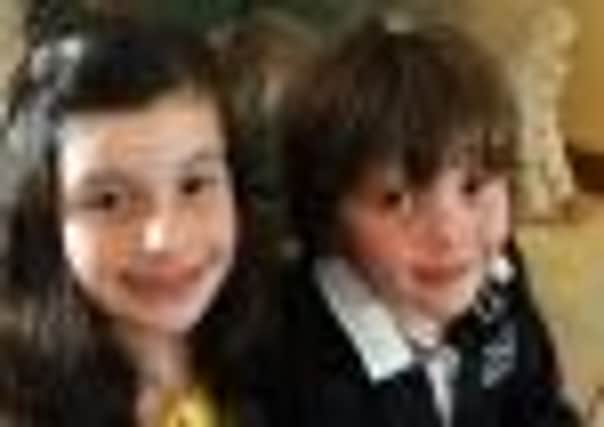Coeliac disease gives food for thought


When he then lunged from one upset tummy to the next, she accepted doctors’ suspicions that it was almost certainly just one bout of something viral after another.
But when the 18-month-old started to lose weight, simply failing to thrive in spite of her best efforts to encourage him to eat, all of Marie’s instincts as a loving mother told her something was definitely not right.
Advertisement
Hide AdAdvertisement
Hide Ad“I was very worried,” she admits. “I carried on until he was nearly two years old, back and forward to the doctor with one thing or another. It was initially put down to a virus or a bug picked up at nursery.
“But there was a period of around eight months when he really didn’t grow much and even lost about 25 per cent of his body weight. The skin was hanging from his bones. It was obvious something was not right.”
Marie wondered if Kinloch’s problems might be something to do with food. But what, exactly, was a mystery.
These days Kinloch is a thriving six-year-old who thoroughly enjoys his food and no longer suffers debilitating bouts of diarrhoea and sickness. He loves to munch on homemade bread and cakes, enjoys pasta and occasional treats with one crucial condition – they must be gluten-free.
For just a speck of gluten – typically found in breads, cereals, pasta and cakes – can tip Kinloch into a severe autoimmune reaction, causing his own body to turn against him.
Finding out that Kinloch has incurable Coeliac disease was, recalls Marie, actually a huge comfort.
“It was a relief to find out that there was something wrong – that I wasn’t some kind of paranoid mother,” she explains.
“I had no experience of Coeliac disease at all, no family history of it, so it wasn’t something I thought of. All I knew about it was that people with it couldn’t eat wheat.
Advertisement
Hide AdAdvertisement
Hide Ad“It turned out that Kinloch’s symptoms were classic for a child with Coeliac disease.”
It’s thought around one in every hundred of us has Coeliac disease, although many are never diagnosed. Often wrongly confused with being a faddy food intolerance, it is actually a potentially serious autoimmune disease which causes the body’s immune system to react violently to the gluten in wheat, barley and rye.
The body then attacks itself, causing damage to the lining of the intestine, preventing the sufferer from properly absorbing vital nutrients. Apart from causing diarrhoea, bloating and cramps, it can also cause weight loss, malnutrition and – particularly problematic in children like Kinloch – a failure to grow.
Undiagnosed, sufferers can go on to develop osteoporosis, have infertility problems and develop some types of cancer.
Kinloch was eventually tested for the condition after his weight loss began to cause major concern and the family GP feared he might well be affected. His blood was checked for antibodies which are produced by the body when gluten is consumed. And an endoscopy was carried out to take a biopsy from the youngster’s small intestines.
Because the condition can be genetic, Marie and husband Simon, 42, a semiconductor engineer, later decided to undergo tests too, along with daughter Anna, ten. While both parents were clear, to Marie’s surprise the checks revealed that Anna was also affected.
“The biopsy showed she was as bad for the condition as Kinloch even though she didn’t have the same kind of physical symptoms,” says Marie.
In fact Anna’s symptoms were a subtle mix of recurring niggling sore tummies which Marie put down to school nerves added to a general tendency to be withdrawn and shy.
Advertisement
Hide AdAdvertisement
Hide Ad